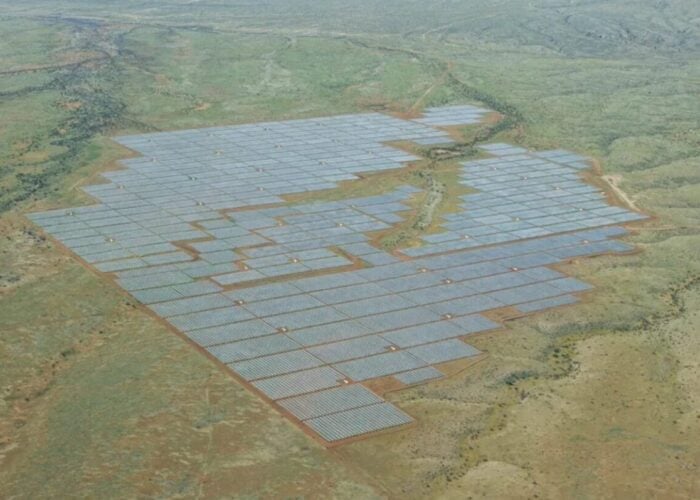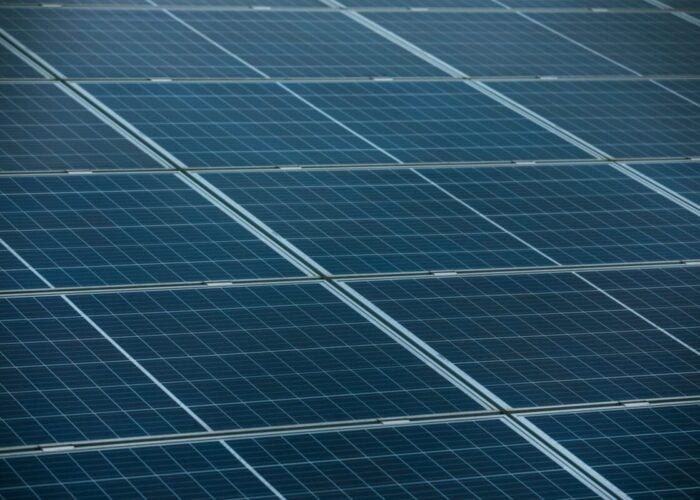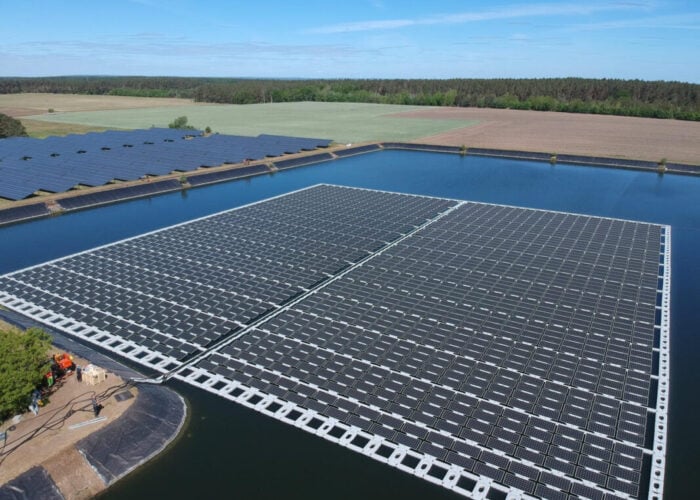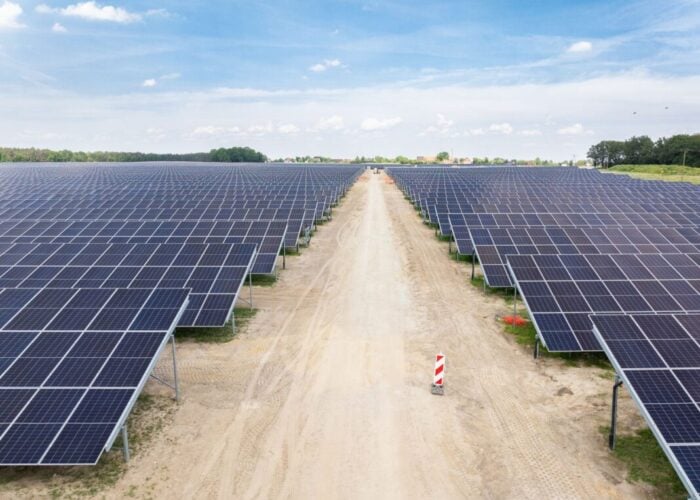Updated: The European Commission’s anti-dumping investigation into PV modules shipped into EU countries from China is having a major impact on module availability and forcing distributors, project developers and installers to alter purchasing decisions, PV-Tech can reveal.
The start of import registration for Chinese modules has prompted a scramble among many distributors to cancel orders as they fear direct ordering will make them liable for any retroactive duties, should the anti-dumping investigation lead to initial import duties that could be imposed by June this year.
Unlock unlimited access for 12 whole months of distinctive global analysis
Photovoltaics International is now included.
- Regular insight and analysis of the industry’s biggest developments
- In-depth interviews with the industry’s leading figures
- Unlimited digital access to the PV Tech Power journal catalogue
- Unlimited digital access to the Photovoltaics International journal catalogue
- Access to more than 1,000 technical papers
- Discounts on Solar Media’s portfolio of events, in-person and virtual
Thin margins and a highly competitive market place in Europe have already resulted in distributors going bankrupt or significantly scaling back operations to reduce short-term financial constraints.
The added uncertainty over whether duties could be very high, as in the case with anti-dumping duties in the US last year, has sealed decisions to withhold further orders with Chinese module manufacturers.
According to a notable number of companies that attended the Ecobuild exhibition in London, England last week, Chinese module manufacturers were increasingly fearful that the EC would impose duties and that the duties would be retroactive. This has led many to decline to cover deliveries of modules after the registration period began at the beginning of March this year for possible duties.
Andrew Witkin, Head of Sales in the Uk for Chinese module manufacturer Jetion Solar told PV-Tech: “We have seen a slump in imports [modules] into the EU since last year. All manufacturers have reduced stocks in Europe and reduced imports.”
Witkin noted that there was a general lack of module availability across the product board from Chinese producers in Europe. Warehouses in Europe were running low with little back-up stock expected, according to Witkin. “Who would import modules with unknown duties?” he said.
The problem has been exacerbated by the unwillingness of Chinese manufacturers to now ship modules into Europe except directly to customers.
Distributors and project developers would potentially be liable for paying duties that could easily be in the hundreds of thousands of euros or pounds, if not into the millions with little chance of going back to customers to pay any retroactive duties.
Overall, module suppliers are reverting to quoting standard lead times from the factory for confirmed orders, which includes manufacturing lead times as well as shipping lead times, something not seen since 2009-10 timeframe.
After two years of easy module availability and short lead times due to well stocked warehouses across Europe, the region is starting to feel the pinch on module availability.
Supply chain shift
The situation has prompted many users to seek module supply from European manufacturers though the knock-on effect has been the need to pass on higher prices to customers, compared to prices offered by Chinese suppliers.
Further afield, some are seeking and obtaining shipments from other Asia-based module manufacturers. These include Taiwanese and Korean suppliers, such as Hyundai.
Some distributors said at the London event that inquiries had been made to source modules from Canadian Solar’s module assembly plant in Ontario, Canada to avoid possible duties and secure reasonable supply.
However, Shawn Qu, Chairman and Chief Executive of Canadian Solar, noted in a conference call to discuss recent fourth quarter financial results that he not only feared the EU would impose duties but that the sales into Europe in 2013 would prove “lumpy”.
Indeed, Canadian Solar, which is shifting its business model further downstream to become a major project developer to support gross margin recovery after two years of financial losses, noted in the recent call that it had aggressive plans to build out its PV project business over the next few years with all of the current projects in Canada alone (400MW) having buyers lined up, translating into revenue of around US$1.5 billion.
The concern is that although Canadian Solar and Yingli Green are expecting a significant increase in shipments this year, neither are planning any production capacity expansions.
Customers have therefore become increasingly concerned that Chinese module manufacturers will become focused on internal consumption via projects, limiting product availability, despite the EU anti-dumping investigation knock-on effects.
Already, low-profile European module manufacturers are reaping the benefits of increased demand. UK-based distributor, Libra displayed quality modules from little known Solsonica at Ecobuild. The company told PV-Tech that it had secured an exclusive supply deal with the Italian producer to meet demand for its UK installer customer base.
PV-Tech was told that Solsonica was ramping capacity to approximately 300MW to meet demand in Europe.
Price dynamics
However, supply chain issues are having a knock-on effect on pricing. Increases in factory utilisation after two tumultuous years for producers have finally brought about a more rational approach to pricing. Companies such as Yingli Green, Trina Solar and Canadian Solar have all highlighted that they are being selective in their pricing approach to order inquiries.
Although none have suggested prices were set to rise the result already seen this year is that factory gate pricing has stabilised for the first time in over two years.
However, prices are rising due to other factors such as exchange rates, which have had an immediate impact on prices in the UK, according to Jetion’s Witkin and distributors during Ecobuild.
Another important factor affecting module prices is polysilicon. With ready supplies having been the single biggest contributor to manufacturing cost reductions that have supported massive ASP declines in recent years as supply outstripped demand, a reversal is already underway.
High-purity polysilicon, notably used in monocrystalline wafer production, is in short supply as producers cut production to reduce pricing pressure and potential losses. Polysilicon price rises have started to rebound from lows of US$16/kg and could potentially reach the US$25/kg mark by the end of the year. This could negate any non-silicon production cost reductions in 2013, despite significantly higher utilisation rates.
That was part of the message from Yingli Green management in its latest conference call, citing only a few cents per watt in non-silicon cost reductions this year.
Although installers and project developers are having to accept small price rises, the overhang of the European anti-dumping investigation is expected to push prices higher unless supply chain uncertainties ease through to any announced duties on Chinese imported modules. Few companies PV-Tech talked to at Ecobuild thought scenario would happen, especially when the UK market was expected to grow strongly this year, despite mainland Europe’s relative weakness.
Module price stability could actually prove to be a boon for the upstream supply chain and provides the first opportunity in over two years to regain much needed margins and potentially support a return to profitability on an annual basis.
Although pricing elasticity is a well known factor impacting on PV installations in general, the micro-markets development recently highlighted by NPD Solarbuzz could negate much of a potential slowdown in installations due to price rises.
However, the shifts in the supply chain in Europe have yet to fully play out, adding to the uncertainties of how pricing will unfold and whether European module manufacturers can benefit from the situation, pre and post any EU anti-dumping decision.






